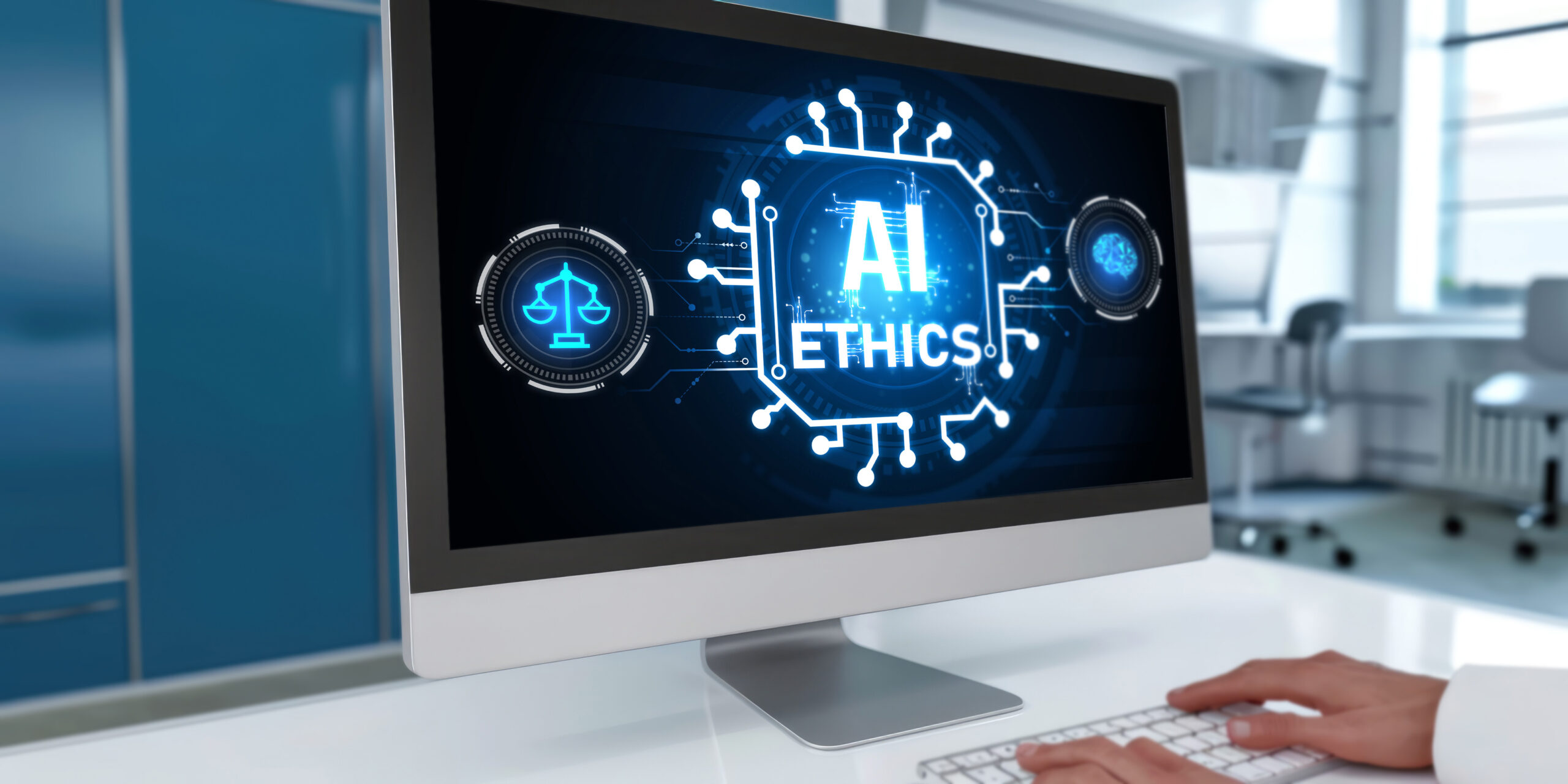From bias-busting to protecting learner data, ethical AI in L&D is essential. Harikrishna Kundariya explores the foundation of how professionals can champion transparency, fairness and human insight whilst also embracing the tech shaping tomorrow’s learning. This will give you a great starting point to research more for your organisation
AI has a major role to play in almost every sector and industry today. Be it healthcare, IT or finance, AI can help in automating repetitive tasks and simplifying complex challenges. But when it comes to the Learning and Development sector, one thing that you need to consider is the ethical use of AI.
L&D experts deal with design, development and deployment, they have to make sure these ethics are taken into consideration
As L&D experts are involved with enhancing training and education processes, they have to be more careful than ever while using AI. So, what are the ethics of AI in L&D, and how can these be achieved?
What does ethics in AI mean?
Ethics in AI means taking into account the various ethical principles and making sure they are implemented in a right and fair way. These principles can include data privacy, security, transparency, fairness, societal impact and more. Since L&D experts deal with design, development and deployment, they have to make sure these ethics are taken into consideration in the right way.
1. Transparency is the key
There is a lot you can do with AI. But as they say, “with great power comes great responsibility”. When using AI, L&D professionals have to make sure they are keeping the process transparent.
Similarly, employees also need to understand how their data is being used. The role of L&D experts is to make sure there is a clear communication regarding the collection and usage of data. This helps build trust as we maintain transparency in decision-making while explaining the algorithm and processes involved. It is equally important to give employees access to their data.
2. Protecting learner information
AI works on data. AI systems analyse collected data to detect patterns and modify experiences based on personal behaviour traits. As a lot of personal data is involved here, organisations must take responsibility for protecting this information. The role of L&D experts here is to ensure AI systems comply with data protection regulations, such as GDPR or CCPA.
Data privacy means information is encrypted all the time, while also giving employees the ownership of declining partnerships in data collection as and when they want. Employees should be able to review their data whenever they want to and must have the option to delete them as well.
The role of organisation here is to make sure external AI vendors are aligning with their set corporate standards and security measures. Ethical handling of learner data should be a mandatory step for any AI-powered system.
3. The role of fairness
When it comes to AI systems, one of the major concerns is bias. As AI systems develop their understanding from the existing datasets, they are bound to replicate any existing biases in the historical data. As a result, AI learning experts must make sure to remove any bias from AI systems.
To maintain their representative and inclusive nature, it is essential to thoroughly select and evaluate training datasets. Establishing relationships with AI vendors that prioritise reducing algorithmic bias remains essential. Regular audits and testing of AI learning tools will prevent biases from entering your training programs.
4. Keeping the human element in the learning process
AI supports human learning, but it should not surpass it. AI systems must not be used as a replacement for human learning capabilities. The L&D expert must carefully balance the decision-making powers of AI systems.
We know that AI can enhance efficiency but it should not be solely used, there has to be human intervention as well. As AI lacks emotional intelligence required in these areas, the role of human insights is a must to make more informed, contextual and empathic decisions.
5. Promoting equal access to AI-driven learning tools
AI is being adopted at a faster rate but with this adoption, there are chances of disparity too. Large, well-funded organisations have early and more access to advanced AI learning tools, leaving small organisations behind. The role of L&D professionals is to make sure all employees, despite their role, responsibilities, position and organisation are getting equal access to advanced AI learning tools.
6. Continuous monitoring and adaptation
AI systems are changing continuously. As new dataset comes in, the algorithm evolves. Therefore, it is crucial to continuously monitor and adjust the fundamental requirements in any AI-based learning tool. L&D experts need to assess and monitor AI tools to make sure they are meeting the set goals and ethical principles.
L&D specialists who track performance metrics and learner feedback can verify that AI systems fulfil their intended benefits and avoid unintentional negative impacts. L&D teams who monitor AI and learning technology advancements can prevent potential ethical dilemmas before they arise.
7. Partnering with responsible vendors
Educational programs can maintain ethical AI practices by establishing partnerships with AI vendors who make ethical standards integral to their design and implementation. Selecting an AI system requires a thorough evaluation of their dedication to ethical standards like transparency and bias mitigation alongside data privacy.
Businesses should choose AI vendors whose ethical values and human-cantered design principles align with their own organisational standards. The design of ethical AI must become the core principle guiding the selection of any implemented learning tool.
Mindset for AI adoption
AI is here to stay, and its benefits across the L&D sector are undeniable. The adoption of powerful technologies requires careful ethical consideration to maximize their usage. L&D professionals must adopt a responsible mindset when using AI to maintain learning programs that are inclusive and transparent while guaranteeing fairness and security.
When L&D professionals promote ethical AI practices they can access all benefits from AI technology while protecting employee needs and rights as well as their individual values. A balanced approach allows AI to become a positive influence in developing workplace learning.
Harikrishna Kundariya is co-founder and Director of eSparkBiz




